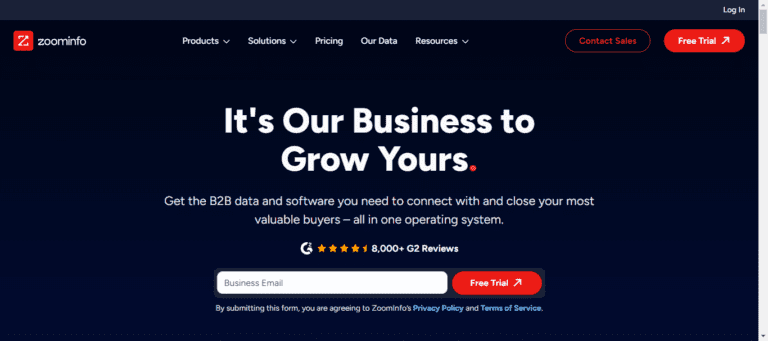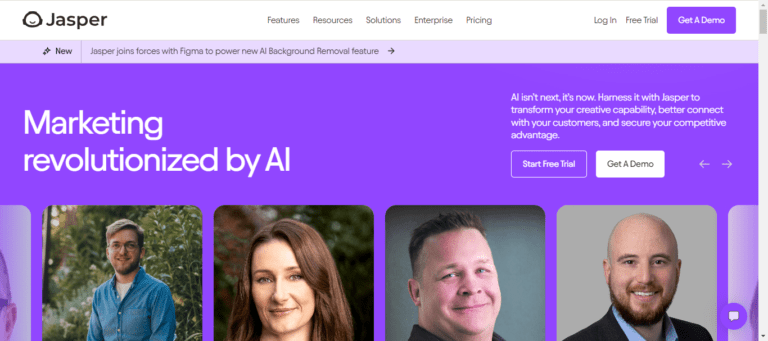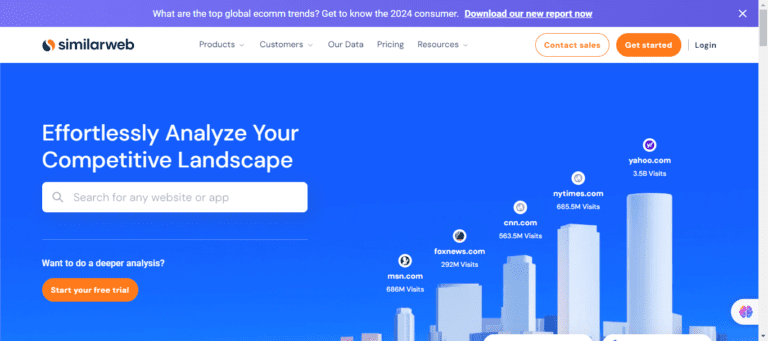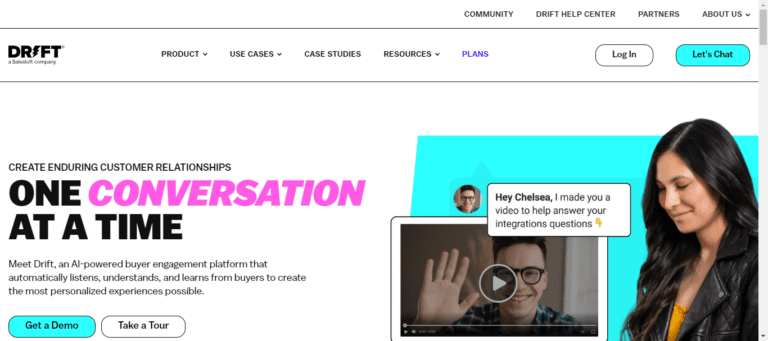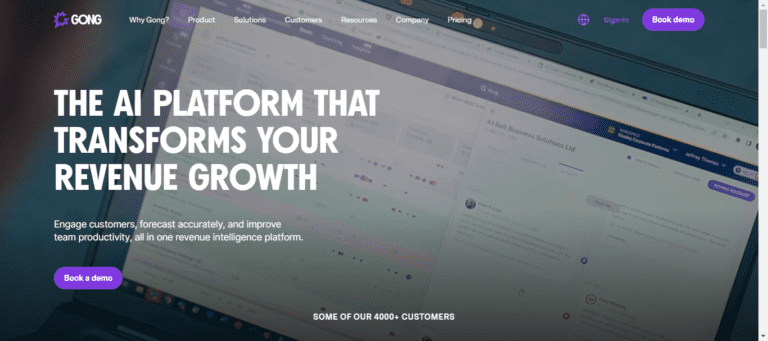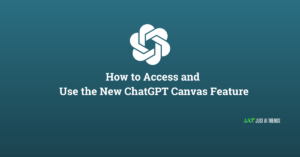
Features
- Web Scraping and Data Enrichment: Gather rich data points on potential customers, including contact information, firmographics, technographic data (technologies used), and news mentions.
- Predictive Lead Scoring: Assigns a score to each prospect indicating their likelihood to convert, enabling prioritisation of outreach.
- Advanced Search Capabilities: Allows for highly targeted searches based on specific criteria like industry, company size, and decision-makers.
- Real-time Data Updates: Ensures you’re working with the most up-to-date information for improved lead nurturing.
- Integrations with CRM Systems: Streamlines data flow and simplifies workflows for a more efficient sales pipeline management process.


